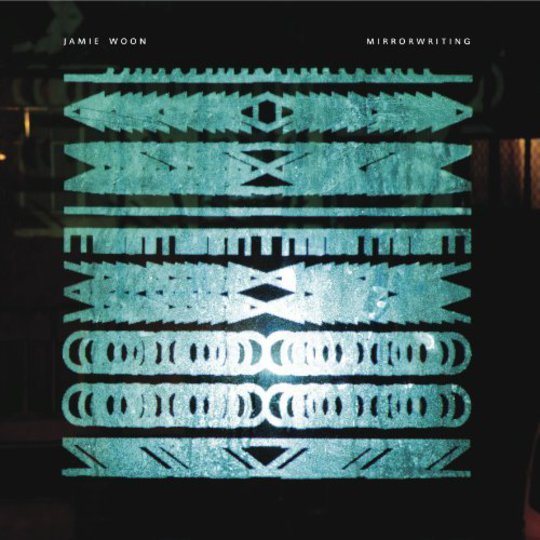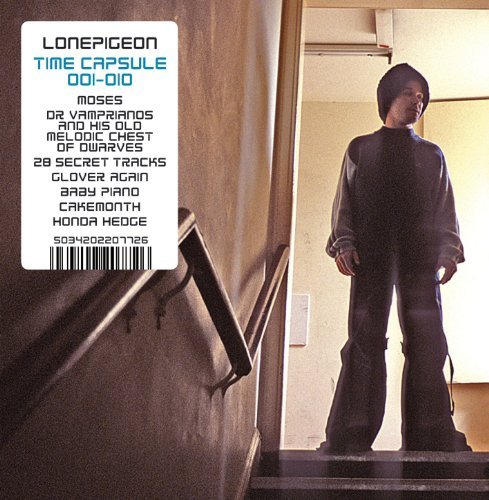Let’s all say a big hello to this week’s Saviour Of British Music, shall we? Jamie Woonis from South-East London, thus meeting the Upbringing Credibility Criteria that has already thwarted the likes of The Vaccines. He’s also dealing in that thing the kids apparently refer to as ‘dubstep’. He made the BBC Sound of 2011 poll… well, we’ll forgive him that as currently the boys of that list seem to be doing better than the girls. And speaking of girls, it doesn’t hurt that he’s bit of a brooding fittie McVittie. The question is whether mirrorwriting can live up to the weight of expectation years worth of bloggers, hipsters and potential fangirls have heaped on it.
If you’ve heard opening track ‘Night Air’ – of course you have - you know what this album’s going to sound like. There’s no surprises offered, no attempt to deliberately wrong-foot the listener for the sake of creating something noteworthy. Musically it’s very calm and measured, offsetting the lyrics’ stories of emotionally charged moments and going off the rails at every given opportunity. In a way, this is also the album’s biggest flaw – it’s so consistent that some of the many great moments don’t reveal themselves until after several listens.
This is A Clever Album - but only in the sense that it’s assured and knows exactly what it’s doing. Woon is clearly uninterested in playing the classic hipster snob game of ‘if you don’t get it you’re not smart enough’ that so much genre-faffing can be guilty of; the album simply exists on its own terms. It owes as much to classic soul and R&B as the very twenty-first century trends that it's been associated with: you just know the marketing people all started silently drafting their resignation letters when they realized it was going to be One Of Those Albums, refusing to fit into a nicely defined box.
The dubstep influence is there, but only in the sense that the songs on display are pared back to only what they need to soar. There’s nothing as extreme as, for example, James Blake’s ‘I Never Learnt To Share’, but at the same time there’s no weighing down tracks with every bell and whistle available. ‘Echoes’s “I live in the space between nights/The echoes of who’s seen who in my mind” sums it up - like Blake, Woon is as concerned with what doesn’t happen, what’s left unsaid, as the action itself.
Of course, all the technical skill in the world won’t save an artist if there’s no emotion there. So the fangirls I mentioned earlier will be pleased to hear that frankly, it’s also a rather ruddy sexy album. I’m sure a pool could be started over exactly which lyric from this album is going to launch a thousand pairs of knickers, because the album is jammed with them. I reckon the tipping point will be around the point Woon appears on the Glasto telly coverage singing ‘Middle’s “I can’t get enough of your love” chorus – not a particularly original lyric but sung in Woon’s voice of molten gold, utterly gorgeous. Or 'Spiral’s “I’m seeing spirals/I’m moving with you again” – the mind, quite literally, boggles. Fortunately this is not an album of either blatant smut or boy band crooning; it’s a testament to Woon’s roots as an acoustic singer-songwriter that the stories of the songs come through loud and clear, but are subtle enough to leave room for the listener interpretation that makes good lyrics great.
Mirrorwriting couldn’t have been made at any time other than now, yet it sits easily next to everything from ‘My Girl’ to Katy B. This isn’t a whole new genre, or a reappropriation of an existing one, or the product of a saviour of British music; it’s simply 11 songs that, somehow, exist in a space we weren’t even aware existed. Don’t listen to it because it’s dubstep, or R&B or soul or from a singer-songwriter who isn’t a David Grey clone, although it’s all those things. Just listen to it because in any genre, it’s a great album.
-
8Krystina Nellis's Score






















